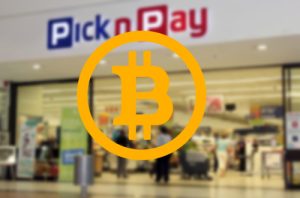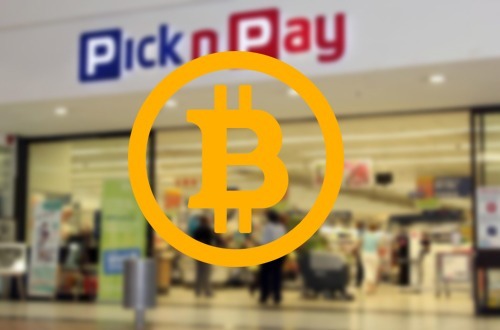
Bitcoin is in the news following the announcement by retail giant, Pick n Pay, that they had conducted a bitcoin payment pilot at their head office’s canteen store in Cape Town.
The trial was conducted with the help of South African-founded bitcoin platform, Luno, who provided the infrastructure for the project.
Following the completion of the trial, Richard van Rensburg, deputy CEO of Pick n Pay, in a Fin24 interview said he is optimistic that the cryptocurrency technology would be adopted in the future.
But what does Pick n Pay’s pilot mean for small businesses? The pilot shows the retail giant is actively working to stay ahead of retail and payment trends, which SMEs should be doing.
Research has shown that South African customers are embracing new technologies. According to the Sage Payments Landscape Report some 96% of South African consumers believe that it is important that a business offers multiple payment methods.
For example, mobile payments solutions such as digital wallets are enjoying explosive growth as South Africans look for more secure, convenient and easy ways to pay,” says Charles Pittaway, Managing Director of Sage Pay, a division of Sage.
Bitcoin could be in our very near future – Here’s what you should know about its potential impact on how you do business.
1. What Is Bitcoin And How Does It Work?
Bitcoin is a digital currency that “uses decentralised technology for secure payments and storing money that doesn’t require banks or people’s names”, according to The Telegraph. The article further states that the currency was created as a way to liberate money in the same way the internet made information free.
The cryptocurrency was created as a way to do away with the need for banks and financial institutions to manage online payments, according to an article on Radio 702 website, because it can bypass restrictions on trade and allow you to buy or sell anything, which has included banned or illegal items.
Users download software which acts as an account called a wallet and can purchase coins through exchanges, the coins can then be used to pay for anything provided the person you are paying also has an electronic wallet to receive the payment, the article states.
2. Why Does Bitcoin Matter?
Dominique Collett, a senior investment executive at Rand Merchant Investments and the head of AlphaCode, a Rand Merchant Investments club for fintech startup entrepreneurs, in an article on SME South Africa, predicted that in 2017 we were likely to see bitcoin technology being embraced more after blockchain made news in 2016.
“I think banks will soon see that blockchain doesn’t really make sense and there will be a move back to Bitcoin – the largest and original application of the blockchain. The move to Bitcoin will be helped along by increased instability in governments. It is still far from becoming mainstream, but I expect to see more of Bitcoin locally. Expect to see more of local companies like Luno,” she wrote.
Bitcoin has the potential to be a “big game changer”, says Van Rensburg, in a MyBroadband article.
Van Rensburg believes the possibility of cryptocurrencies being adopted by other retailers and companies is strong. He told Fin24 that cryptocurrencies such as Bitcoin were still in “relative infancy” but would in time be accepted by the retail industry.
“We are very excited about what we have learnt and about what the long-term promise of cryptocurrencies holds for our industry and our customers,” he said and explained that accepting cryptocurrency has the potential to provide a cheap and frictionless cashless payment platform in the future, and believes it is this that will drive its eventual adoption by the industry.
3. What Does It Mean For SMEs?
The adoption of Bitcoin has a number of potential benefits for small businesses and their customers, says Adam White, director of business development and strategy at Coinbase in an article on Entrepreneur Mag.
The first, White says, is that Bitcoin could lower transaction fees. This is the biggest reason smaller merchants are latching onto Bitcoin payments, he says.
“Small businesses, on average are paying higher credit card fees than Walmart is, and Best Buy,” White says. “These are large, enterprise level businesses that have scale and therefore they can negotiate lower credit card transaction fees. Small mom-and-pop shops can’t.”
The second big benefit of Bitcoin is in fraud prevention, White says.
“With Bitcoin, there is no personal identity attached to that form of value. It’s a lot like digital cash, and there’s no way it can be intercepted, and my identity can’t be disclosed. That prevents a lot of issues like we saw with the Target data breach and the recent UPS Store breach,” he says.
Yet another way transacting in the virtual currency saves merchants money is that Bitcoin purchases are final, so there are no chargebacks and no returns, like those rife in credit card dealings, White says.
“Credit card chargebacks occur when a card user disputes a purchase made with his or her card, often because of defective goods or items never received. Or, perhaps he or she fell victim to identity theft and never authorized the purchase in question in the first place. When a chargeback happens, not only does the credit card company withdraw the money for a transaction from your merchant account and deposit it back into the customer’s, you typically also get slapped with a costly chargeback fee.”
See also: 5 Ways to be a more Balanced Entrepreneur
4. The Barriers
Adoption of bitcoin has been slow worldwide, partly because users regard it as complex and because it is not widely supported among financial institutions.
Bitcoin adoption in SA faces many barriers including the difficulty in obtaining the currency, which is not supported by any government, and lack of support from local merchants, according to a Fin24 article.
“As with any new technology, but especially for matters related to finance, it takes time for people to develop trust. In this case, trust in the cryptocurrency, and in companies that provide Bitcoin services,” Charles Elliman, then head of business development at PayU EMEA, said in the 2016 interview.
Uncertainty about regulation is proving to be another major barrier according to a Bloomberg article with Felix Salmon, senior editor and blogger for Fusion Magazine, adding that regulators are risk-averse, “The one rule they know is that ‘if I don’t understand it, I don’t like it,'” he says in the article.
“Central banks also fear their ability to monitor the payment system would fall. Given the global fight against terrorism and organised crime, this is an acute concern,” says Huw van Steenis, Global Head of Strategy at global asset manager, Schroders.
Pick n Pay’s Van Rensburg has said he believes it will take some time before cryptocurrencies become widely accepted as a form of tender.
“Progress is unlikely to be hampered by technology, but rather by regulatory issues and concerns,” he told ITWeb.
“We don’t expect that in the near term, accepting Bitcoin will unlock any significant new business and we are unlikely to roll-out the solution until the payments industry and regulatory authorities have established a framework for managing the risks associated with cryptocurrencies,” he says.







